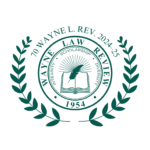Legalizing Fraud in Michigan Contract Law
In 1998, the Michigan Court of Appeals decided a case that dramatically changed the parol evidence rule in Michigan. In UAW-GM Human Resource Center v. KSL Recreation Corporation (KSL), the court reinterpreted the parol evidence rule to hold that because of an express merger clause, evidence of an alleged collateral agreement was inadmissible to change the terms of the contract. Even evidence of fraud was barred in this case. The parol evidence rule bars admission of written or oral evidence that would contradict the terms of the integrated agreement. In most states, however, there is an exception to allow evidence that suggests fraud. The majority opinion in KSL sharply limits this exception. Read More …
